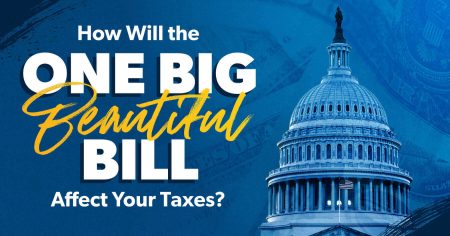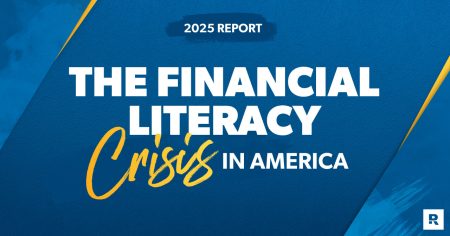Credit Sesame’s personal finance news roundup February 1, 2025. Stories, news, politics, and events impacting personal finance during the past week.
Economic growth continued in Q4 2024
The US economy finished 2024 with its 11th consecutive calendar quarter of economic growth. In the fourth quarter, Gross Domestic Product (GDP) grew at an inflation-adjusted annual rate of 2.3%. That’s lower than the third quarter’s growth rate of 3.1%. GDP grew by 2.8% for the year, similar to 2023’s 2.9% growth. See details at BEA.gov.
2024 existing home sales lowest in nearly 30 years
Sales of existing homes totaled 4.06 million last year. This was the lowest annual total in nearly 30 years, according to the National Association of Realtors. The median price of existing homes sold reached $407,500, an all-time high. High prices and elevated mortgage rates slowed the total volume of homes sold. Home sales did improve in December 2024. Existing homes sold at a seasonally-adjusted annual pace of 4.24 million during the same month. That was a 9.3% increase from the previous December, the strongest year-over-year rise since October 2022. See details at NAR.Realtor.
Hiring freeze may slow placement of bank examiners
The Washington Post reported that the federal government’s new hiring freeze would cause the FDIC to rescind 200 job offers to candidates to fill vacancies for bank examiners. These positions inspect the operations and financials of banks to ensure they are within policy guidelines. These efforts are intended to protect the stability of the banking system. See details at WashingtonPost.com.
CFPB finds cash-out mortgage refinance boosting credit scores
The Consumer Financial Protection Bureau released a report showing that people who obtained a cash-out refinance mortgage generally improved their credit scores. This is linked to paying off bills or other debts, the most commonly cited reason for cash-out refinancing. People typically showed dramatic drops in credit card and auto loan balances when they got these mortgages. The average results included a steep, immediate increase in credit scores. Though scores drifted back down later, they were still typically higher than before refinancing. Cash-out refinancing can be used to retire more expensive forms of debt. The CFPB also warns that it can increase the risk of foreclosure. See details at ConsumerFinance.gov.
Fed leaves interest rates unchanged for now
The Federal Reserve announced it will leave the Fed funds rate within a target range of 4.25% to 4.50%. This is the first time since last July that the Fed has met without cutting interest rates. Over its most recent three meetings, the Fed has cut rates by 1%. However, the decision to leave rates unchanged is not a surprise. The Fed is aiming to balance encouraging growth and limiting inflation. With the economy continuing to grow and recent signs that inflation is perking up, the Fed had no compelling reason to hurry the next rate cut. The Fed’s latest economic projections show they expect to cut rates by 0.5% this year, and with seven more meetings on the calendar for 2025, the Fed should be expected to leave rates unchanged more often than not. See details at FederalReserve.gov.
US bank finances improved in Q4 2024
Credit analyst firm Fitch Ratings reported that the financial performance of large banks improved in the final quarter of 2024. Banks benefited from a rise in net interest income. This is the difference between the interest banks earn from loans and the interest they pay on deposits. Banks can quickly lower the rate they pay on deposit accounts when short-term interest rates fall, as they did in late 2024. However, they can lower rates on credit cards more slowly. Also, many long-term loans they make to customers have fixed interest rates, so these don’t change immediately when rates fall. Stronger net interest income is good for the banking system’s stability, though it can represent a bad deal for individual bank customers. See commentary at FitchRatings.com.
AI helps spot fraudulent account applications
Banking security firm Socure recently used artificial intelligence to spot thousands of fraudulent checking and credit card account applications. The applications used real names and personal information of Massachusetts residents to set up the bogus accounts. The AI program flagged the applications based on the unusually high volume and the time of day they were made, which correlated with a foreign time zone rather than typical US business hours. Closer examination found that although the addresses given on the applications were of Massachusetts residents, the IP addresses the applications came from were outside the state. See story at Boston25news.com.
All weekly news headlines from Credit Sesame
Read the full article here









